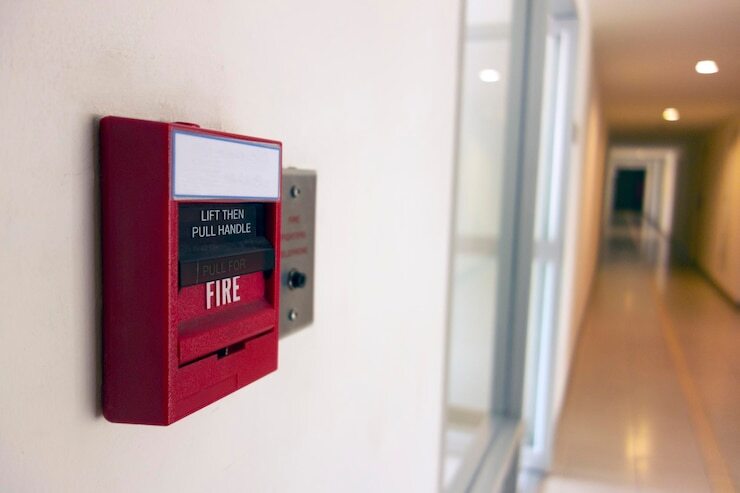Commercial buildings like warehouses, manufacturing facilities, and offices are critical to the communities they serve. Naturally, those responsible for these facilities go above and beyond to protect their assets, employees, and, of course, their customers. One way they do that is by investing in robust fire alarm systems.
The question is, how do they actually work? In this guide, the Preventive Fire team will break down the basics of fire alarm systems in commercial buildings, including the most commonly used and effective countermeasures.
The Basics of Fire Solutions
First, let’s look at the basic components of a typical fire alarm system. While each solution is customized to the size and use case of the building, virtually all commercial systems have the following components:
- Smoke detectors
- Heat detectors
- Audible and visual alarms
- Control panels
- Sprinklers
Each component plays an important role in detecting and alerting occupants to the presence of a fire.
Think of smoke detectors as the first line of defense. They can identify a fire in its early stages and help first responders determine which areas of the building have been impacted. Many systems combine multiple types of detectors, each of which excels at sensing certain kinds of fires.
After a fire is discovered, the rest of the system springs into action. The detectors will send a signal to the panel, which will activate the visual and audible alarms, as well as the sprinkler systems.
Common Commercial Fire Countermeasures
Now, let’s shift our focus to a few of the most widely used fire countermeasures.
Spray Booths
Businesses in industries like woodworking, manufacturing, and automotive painting often use spray booths. These specialized booths help workers mitigate the risk of fire when using flammable materials.
Despite their best efforts, a small spark can still kick off a blaze. That’s why modern spray booths feature built-in fire suppression systems. If activated quickly enough, they can put out the flames and help prevent injury to staff.
Fire Alarms
In the commercial setting, fire alarms typically include pull stations. Many of these activation points feature protective glass or a recessed t-handle, which prevents accidental activation.
Commercial businesses are required to have pull stations dispersed throughout the facility. If you are setting up or managing a business space, make sure to consult with the local fire marshalls to ensure compliance.
Kitchen Hood Systems
Commercial restaurants often use kitchen hoods to address grease fires. These units typically consist of a ventilation hood, ductwork, and fire suppression devices. Users can activate the suppression feature by pulling a handle located near the cookstation.
This equipment usually features a potassium-based chemical, which becomes a foam that smothers the fire. Such an approach is necessary when dealing with kitchen fires, as they are often fueled by grease.
Marine Fire Protection
As a Florida-based safety company, Preventive Fire’s team of experts specializes in marine fire protection. Our marine systems include a range of devices, including alarms, detection equipment, and suppression solutions.
The scope and complexity of the system will vary based on the size of the vessel. Smaller boats may rely on compact fire extinguishers. Larger ships might be equipped with fire hoses or even automated suppression systems.
Have Questions About Commercial Fire Alarm Systems?
As your Florida fire experts, Preventive Fire can help with all your alarm and suppression system needs. We offer everything from smoke detectors and extinguishers to comprehensive solutions for large businesses.
Getting started is easy. Simply contact our team, and let’s chat about your fire alarm system needs. We look forward to helping you and your team stay safe!

